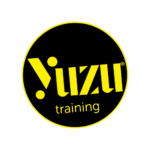Content Creator
Level 3
Yuzu Apprenticeship
For enquiries and further information, email [email protected] or call Tel:02380 170378
-
Funding Value:
(Levy) £10,000 -
Employer 5%
(Non Levy) £500 -
EPA Cost:
(Paid by Yuzu) £TBC - Skill Level : Advanced Course
- Certificate : NCFE, Pearson, ICQ

Course Level
Level 3
Category :
Marketing
Time Duration:
18 Months

COURSE DESCRIPTION
Those in a marketing assistant role who report to a Marketing Executive, Marketing Manager or Marketing Director. Typical job roles include Content Creator/Producer, Marketing Assistant, Digital Marketing Assistant, Marketing Junior, Social Media Assistant.
The broad purpose of the occupation is to develop and create written and audio visual content that can be used across a variety of platforms and media. This may include social media, broadcast or in print.
A content creator works to a brief. They research, prepare and develop the messaging to maximise audience engagement. They capture the strategy and objectives of the brand and needs of the customer, client or business.
ROLE PROFILE
Upon completing the Content Creator Apprenticeship, candidates will possess the expertise to thrive in a variety of professional marketing environments, ranging from small-scale enterprises to multinational corporations spanning the public, private, and third sectors. As adept creators of written and audio-visual content, they will have cultivated the skills necessary to tailor messages for diverse platforms including social media, broadcast, and print, in alignment with brand strategy and audience preferences. Through research and strategy preparation, they will effectively engage audiences, contributing to media, advertising, and marketing initiatives. Interacting with a spectrum of stakeholders, from clients to production teams, they will adeptly navigate the content creation process, ensuring the timely delivery of high-quality material within budgetary confines and in compliance with legal and regulatory standards. Commitment to continuous professional development will be paramount as they remain attuned to emerging technologies and evolving consumer trends, solidifying their roles as indispensable contributors to any content-centric enterprise.
Our comprehensive curriculum covers a range of duties, including market intelligence, content creation, event organisation, and CRM system management. Gain hands-on experience in monitoring campaign performance, optimising channels, and evaluating marketing effectiveness. With a focus on English UK standards, our apprenticeship ensures you stay ahead in the ever-evolving marketing landscape.
HOW WILL I BE TRAINED?
- 12 Months of Training
- In workplace Training Delivery
- Online Training via Teams Or Zoom
- 1-2-1 Trainer Support
- Functional Skills Maths & English Support
- Observation in Workplace
- EPA Project / Portfolio of Evidence
- Knowledge Test
KNOWLEDGE
K1: The principles and process of setting a budget to produce content.
K2: The methods used to segment and understand core audiences and how to plan content for these.
K3: Availability of data and its use to inform decision making when identifying channels, formats and platforms for content creation.
K4: The end-to-end production workflow process for the organisation, the key stages, and own role within this
K5: The regulatory and legal requirements when using media assets such as copyright, intellectual property rights, GDPR, web accessibility and non-disclosure agreements.
K6: Personal and employer responsibilities regarding data protection and data sharing, the potential impact on a business and the regulations that cover this.
K7: How to identify the commercial drivers for a client/customer.
K8: The importance of brand, brand awareness, brand purpose, branding guidelines and the intended audience within a brief.
K9: Where content creation fits within a marketing strategy.
K10: How tone of voice can be adapted effectively to reflect the content.
K11: How audiences and their behaviours differ across channels and platforms and the different communication styles that could be used.
K12: How creative content can be used across multiple channels and platforms, and how the platform chosen affects the content production.
K13: The different styles of writing that can be used according to the type of content, channel and platform required.
K14: Correct use of grammar, punctuation, spelling and inclusive language.
K15: The principles of writing persuasive copy for a person or group or to raise brand awareness.
K16: The principles applied to create or capture visuals and audio when using standard packages and equipment.
K17: Where to source, adapt and edit content from.
K18: How to organise, structure and label content effectively, methodically and securely to enable efficient search and retrieval.
K19: How web pages are published and how the content can be optimised to ensure high rankings in search engine results.
K20: The importance of clearly articulating requirements and how this can influence priorities for a campaign.
K21: How communication styles can be adapted to suit different audiences.
K22: How to plan content delivery against the schedule.
K23: The principles for creating an effective campaign with measurable outcomes.
K24: The principles of mapping user journeys to ensure content is focused on maximising engagement.
K25: Ways/methods of engaging with audiences, how to respond to evolving situations, recognise potential threats/issues and when to escalate these.
K26: How to evaluate the success of the campaign against the objectives using available data.
K27: How to keep up to date with existing and evolving content tools, platforms, trends and talent.
K28: Approaches to managing and marketing own skills and services.
K29: The culture of the organisation in which they are working, the commercial pressures, project deadlines and organisational working practices.
K30: How the structures, regulation and funding of organisations affects creative media activities.
SKILLS
S1: Interpret the aims of the brief.
S2: Research ideas and concepts to meet the brief.
S3: Evaluate brand requirements and brand guidelines.
S4: Prepare a mood board or other visual aid for the content to be created.
S5: Present ideas, pitches and proposals for creative content to be further developed.
S6: Storyboard and outline script their ideas for content to be developed.
S7: Interpret data, consider its integrity and use it to inform content.
S8: Develop accessible written content for different platforms and devices.
S9: Apply best practice and inclusive language when creating content.
S10: Write and edit copy or scripts for use on different channels and platforms.
S11: Create or capture visuals and audio using standard packages and equipment.
S12: Source, obtain and prepare media assets for use; using industry standard packages to adapt and edit content.
S13: Use industry standard tools and content management systems to organise, structure and label content effectively, methodically and securely enabling efficient search and retrieval.
S14: Identify and recommend the platform/s or channel/s to use for the media campaign.
S15: Develop and maintain effective working relationships with clients, colleagues and suppliers, establishing and using professional contacts.
S16: Engage and respond with audiences through social media, adapting content to respond to evolving circumstances.
S17: Monitor user experience to ensure content is focused on maximising engagement.
S18: Analyse the differences between audiences using audience segmentation techniques and data.
S19: Use lessons learned to evaluate the success of the content and identify areas for improvement for future campaigns.
S20: Use continuing professional development planning to support own current and future training and development needs.
S21: Operate effectively within the production workflow to meet production timelines.
Behaviours
These are the personal attributes and behaviours expected of all content creators carrying out their roles:
- Commitment to Excellence: dedicated to producing high quality and innovative content, consistently striving for excellence in every project undertaken.
- Collaborative Spirit: Acts in a way that builds and maintains positive relationships with customers, team-oriented approach, fostering effective collaboration and synergy with colleagues and stakeholders to achieve shared goals and objectives.
- Customer-Centric Approach: Interacts with customers in a manner that cultivates and sustains positive relationship. Acts in a way that builds and maintains positive relationships with customers.
- Ownership Mentality: Takes full ownership of tasks and responsibilities, demonstrating a proactive attitude towards achieving exceptional outcomes.
- Ethical Conduct: Acts in a professional and ethical manner, embracing equality, diversity and inclusion in the workplace.
- Continuous Learning: Committed to keeping up to date with new technologies and industry best practice.
- Reflective Practice: Reflects on the results of the content created and identifies areas for improvement.

Stephen Williams
Yuzu Trainer
After completing his degree in Communication Studies and gaining experience in management roles, educational settings, and leading coffee teams, Stephen joined us six years ago with the aim of inspiring others to grow and learn in ways that suit them best.
During his time with us, Stephen has trained and developed many learners, focusing on personalised learning experiences. He’s determined to continue this journey, offering tailored support to each learner he works with.
Stephen’s known for his approachable style and ability to make learning enjoyable and effective. We’re confident that anyone working with Stephen will have a great experience and gain qualifications that really matter.
Benefits for the employer
- Apprentices learn vital skills they can apply directly to their roles, including: SEO, copy writing and editing, and content creation across various formats
- It’s a cost effect training solution for your company
- Your apprentice will be fully qualified in just 21 months
Who is this apprenticeship for?
Those in a Marketing role that create content for a wide range of media, including social media, broadcast and print.
Role titles include:
Typical roles include: Content assistant, Content creator, Content producer, Junior content producer, Multimedia executive, Social media assistant, Social media co-ordinator, Social media executive.
Funding & Cost
Employers are entitled to funding from the Government to help pay for Apprenticeship training. The cost of the apprenticeship is set by Government and the cost for the Customer Service Practitioner Apprenticeship is £10,000.
If you are an employer who pays the Apprenticeship Levy, the full cost of the programme can be paid through your Apprenticeship Levy.
If you are non-levy payer, the Government will pay 95% of the apprenticeship costs and you as the employer pay a 5% contribution of £500.00 at the start of the programme.
In some cases, funding via Levy Transfer can be arranged to cover the 5% contribution, if your learner is under the age of 22 you will no longer be required to contribute the 5% towards the cost of the apprenticeship.
For any questions or further information:
Email [email protected] or call 02380 170378
Are you ready to upskill?
Enter your details below & our Apprenticeship team will be in touch!
